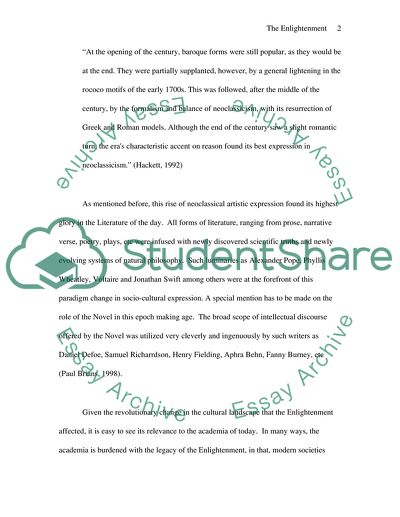Cite this document
(What Was the Enlightenment and Why Is It Important for Modern Assignment, n.d.)
What Was the Enlightenment and Why Is It Important for Modern Assignment. Retrieved from https://studentshare.org/education/1546949-what-was-the-enlightenment-and-why-is-it-important-for-modern-unversities
What Was the Enlightenment and Why Is It Important for Modern Assignment. Retrieved from https://studentshare.org/education/1546949-what-was-the-enlightenment-and-why-is-it-important-for-modern-unversities
(What Was the Enlightenment and Why Is It Important for Modern Assignment)
What Was the Enlightenment and Why Is It Important for Modern Assignment. https://studentshare.org/education/1546949-what-was-the-enlightenment-and-why-is-it-important-for-modern-unversities.
What Was the Enlightenment and Why Is It Important for Modern Assignment. https://studentshare.org/education/1546949-what-was-the-enlightenment-and-why-is-it-important-for-modern-unversities.
“What Was the Enlightenment and Why Is It Important for Modern Assignment”. https://studentshare.org/education/1546949-what-was-the-enlightenment-and-why-is-it-important-for-modern-unversities.


